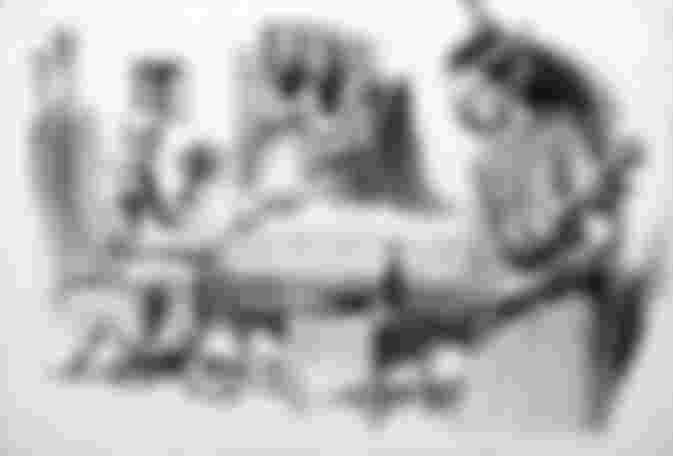Al-Farabi
Al-Farabi is one of the few great intellectuals in the history of Islamic state philosophy to have earned a reputation as the best philosopher of the East. Not only that, but Al-Farabi's outstanding knowledge of Islamic philosophy, theology, metaphysics, science, and medicine points to his place after Aristotle. For this reason Aristotle is known as the ‘Muallim Awal’ or first guru and Al Farabi as the ‘Muallim Sunny’ or second guru in the Sudhimahal of the East.
About eleven hundred years ago today. Christian June 870. Al-Farabi was born into an aristocratic Turkish dynasty. His real name is Abu Nasr Muhammad bin Turan bin Uslug. He was born in Wajis, in the city of Farab, the center of Turkish civilization in Asia. He used the title 'Farabi al-Turki' because he was a resident of Farab. He later became known as Al-Farabi.
Al-Farabi was the son of an aristocratic family. He spent his childhood in affluence. As a child, he followed in the footsteps of his father and other eminent academics and acquired knowledge on various subjects. According to the tradition of that time, he acquired great knowledge about medicine. At an early age, al-Farabi entered Baghdad, then the main educational center of the East, and in a short time mastered Arabic and Greek. He then studied Greek philosophy with Abu Bisr Mitah Ibn Yunus, a translator and commentator on the works of Plato and Aristotle. After his initial knowledge of Greek philosophy, al-Farabi acquired a deep knowledge of philosophy from another Christian philosopher, Johann Ibn Zilad. In Baghdad, he also learned Sanskrit, Hebrew, Emrani, and Egyptian.
Al-Farabi lived in Baghdad for about 40 years, during which time a total of six Abbasid caliphs appeared in Baghdad. Frequent caliphate changes led to political unrest in Baghdad, and opposition forces grew stronger. Taking advantage of the weakness of the caliphs, many people continue to pack sugarcane. The caliphs became the pawns of the influential Amir Umrah. In this environment, it is almost impossible for al-Farabi to pursue independent education in Baghdad. He left Baghdad and went to the court of Emir Saifuddaula in Aleppo. Amir was fascinated by his deep erudition and gave him shelter in his court. Many philosophers, scientists and thinkers gathered in Aleppo at that time. In fact, as a result of the Amir's sincere patronage, Aleppo became a center of learning. Al-Farabi spent the rest of his life at the Aleppo royal court. He had no lust for wealth. This is the best thing he deserves, considering that he had the opportunity to acquire knowledge in the peaceful shelter of the Sultan.
Al-Farabi will be immortalized as a great philosopher and the originator of Islamic philosophy. He is known to have authored hundreds of books in Arabic on philosophy, metaphysics, science, medicine, mathematics and music. He wrote the first Islamic encyclopedia and Muslim logic. He also wrote extensively on the original writings of Plato and Aristotle. It was through his writings that later Muslim philosophers became acquainted with Greek philosophy. He also wrote four basic books on political science, such as Siyasatul Madania, Ara Uah Lil Madinatul Fazilah, Jawasius Siyasat, and Ijtimaatul Madania. He wrote a short version of Plato's Jurisprudence. Siyasat and Ara are the most important of his books.

In his book Politics, Al-Farabi discusses the differences between man and beast, the ideal city, the requirements and qualities of an ideal head of state, and the classification of states. In Ara Uah Lil Madinatul Fazilah, he discusses sovereignty, contractual equality, individualism and the origin of the state.

Despite being an ardent fan of Aristotle's philosophy, al-Farabi did not follow him. He was just a commentator on Aristotle's philosophy. By applying his judgment, he did not hesitate to take the necessary approach. Despite being a high-ranking philosopher, he was a devout Muslim. Its identity can be noticed in all his works. Farabi's main interest was in logic. According to him, logic helps people to know the unknown by distinguishing between truth and falsehood. According to Farabi, true logical judgment or sentence can be considered as self-evident. Which are transparent, clear and do not need to be proved to be true. As the whole is greater than its part, or one of the two contradictory ideas, the other must be false. Of these axioms, the source of the conflict is the highest local. With the help of this formula, it is very easy to tell the difference between truth and falsehood. Farabi considered logic and epistemology to be one and the same.
Al-Farabi writes about natural sciences and meteorology. He has written valuable articles in astronomy by researching the nature of the motions of the planets, stars and galaxies in the sky. He has also written essays on Rekhashastra (Mabarsadhahapu), Swapnatattva (Utvadhasa) and Jinn Jagat. His groundbreaking work in music science is Ehsaul Uloom and Kitab Al Music Al Kabir.

Al-Farabi was an epoch-making philosopher. Among Muslim scientists, al-Farabi's contribution may be credited. He later became a Muslim.



good post